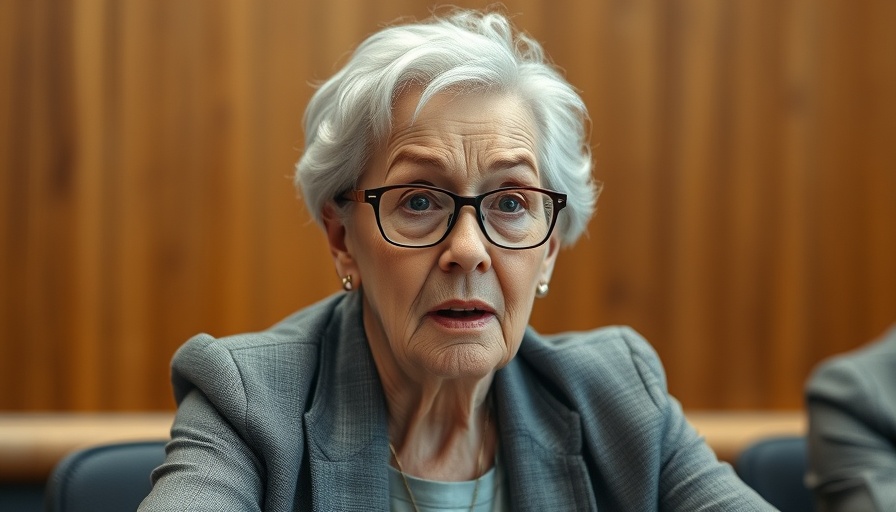
The Showdown Between California and Texas: A Redistricting Duel
As the 2026 midterm elections loom large, California Governor Gavin Newsom is stepping into the political arena with vigor that underscores the high stakes involved in the upcoming redistricting battle against Texas. With the House of Representatives hanging in the balance, Newsom met with Texas Democrats in Sacramento this past week to strategize on pushing back against Governor Greg Abbott's redistricting plans aimed at securing additional GOP seats for the next election.
"Everything is at stake if we are not successful next year in taking back the House of Representatives," Newsom articulated at a recent news conference. His clamoring for a level playing field extends beyond mere partisan lines; it hints at a broader fight for the integrity and fairness of the electoral process in America. Newsom's urgent tone reflects not just political ambition, but a fight against what he describes as a distorted landscape created by gerrymandering, particularly in Texas.
The National Implications of State-Level Decisions
The pressures of redistricting are felt not only in Texas, where Republican lawmakers are allegedly poised to add five more seats to their column, but nationally as well. The strategies employed by states directly affect control in Congress, where Democrats fear that a rigged system could undermine their chances not just in 2026 but in subsequent elections too. By challenging Texas's approach, Newsom is positioning California as not just a counterweight but a key player in safeguarding democratic norms.
A potential path forward discussed among California lawmakers is to leverage their current supermajority. This could involve a mid-decade redrawing of congressional maps or an initiative that would allow voters to make significant changes to district boundaries. However, the approach raises questions about how the California Citizens Redistricting Commission—which exists to ensure fairness and transparency—will adapt to such maneuvering.
Balancing State Authority and Voter Sentiment
Political experts caution that any action taken by California Democrats must navigate voter sentiment delicately. Paul Mitchell, a Democratic data analyst, reminds us of the importance of assuring the public that such actions are temporary and meant to combat the immediate threat posed by Texas. The challenge lies in avoiding the appearance of hypocrisy while confronting perceived injustices in redistricting practices elsewhere.
Mitchell's insight reinforces a key sentiment: tackling gerrymandering isn't just about partisanship; it's about preserving voters' trust in their representatives and the electoral system at large. Californians pride themselves on their voter commission approach to redistricting, and any deviation could have wide-reaching implications for public perception and party integrity.
What Lies Ahead: Future Electoral Battles
Looking beyond the immediate battles, Newsom's assertions hint at a dire warning: if the GOP's strategies succeed, the consequences could extend well into the 2028 election cycle. In a moment of urgency, he warns that the current political landscape necessitates unconventional strategies in response to an unprecedented situation.
As California and Texas gear up for this high-stakes showdown, the expectations set forth by Newsom underscore a pivotal moment in American politics. The outcome will not only influence who sits in Congress but will reverberate through the electoral landscape for years to come.
Engaging the Public: Why You Should Care
As citizens poised to participate in the democratic process, understanding the dynamics of redistricting is essential. Elections are more than just an event; they are a manifestation of public voice and sentiment. Keeping abreast of these changes provides the public with an opportunity to engage in meaningful dialogue around what fair representation should look like.
As you absorb these developments, consider reaching out to your local representatives, attending town halls, or engaging in community discussions about what fair elections mean to you. Every voice counts in shaping the future of democracy.
 Add Row
Add Row  Add
Add 



Write A Comment